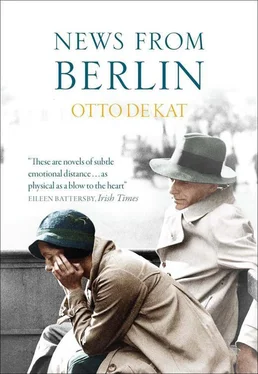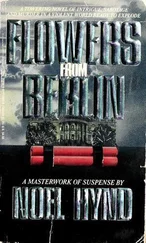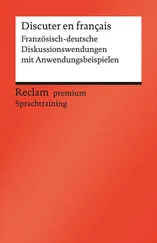He knew who else would be present. David Kelly, the British resident minister. Pinto, the Portuguese military attaché. Horst Feller, a Swiss diplomat. Walter Irving, the American chargé d’affaires. Ismet Fahri, the Turkish envoy. And the American journalist Howard Smith, just arrived from Berlin. It was to be an informal dinner party, all protocol having been waived. Ambassadors mixing with lower-ranking diplomats was generally frowned on, and having a journalist present always carried an element of risk. And risk-taking was not normal ambassadorial practice, but in Berne, on that particular day in June, other considerations applied. Over the past weeks of gathering menace in a world already in the grip of fear, everything had come to be viewed in a new light.
Verschuur had recently learned the date. It was quite soon: June 22, just under three weeks from now. But he knew he had to keep the information to himself, there was no other option. He was a past master at keeping secrets, it had become second nature to him. He enjoyed it, it was food and drink to him. It was what he did for a living, his brief being to uncover what lay hidden, and to cover up such tracks as had been inadvertently exposed. He was a cover-up artist. A diplomat, on secondment to the Dutch legation, with a covert mission.
But this secret was different. In an unguarded moment, he had been hurled out of his orbit by a message to which he could not shut his ears, even as his lips had to remain sealed. The ramifications were immeasurably vast and terrifying. Three more weeks to go, and it was impossible to breathe a word. Yet there was every reason to give out warnings, telephone government ministers, sound the alarm, raise a great hue and cry.
Oscar crossed to the other side of the Junkerngasse, then turned into the Kreuzgasse; he walked past the cathedral and down the Schifflaube, stopping at no. 52. The door was opened by a maid, who took his coat and hat. He was late, too late according to the rules of diplomacy, the higher ranks having already arrived. But there were to be no rules this evening, no-one was there in an official capacity, it had more the air of a conspiracy. Verschuur was acutely aware of the anomaly of the scene before him: a British ambassador and a Swiss diplomat having a chat at a side table over a carafe of white wine, a Turkish envoy resting his hand on the shoulder of an American, a Swede showing a German newspaper to a Portuguese. The diffusely lit reception room was the stage for a shadow play in which he, Verschuur, was the last actor to make his entrance. Unheard music passed through his mind, the voices, the gestures all around him, an entire alphabet of goings-on. He noted that they all raised their heads when he came in, saw a smile here, a wave of the hand there. Björn Henderson, the Swedish host, stepped forward to greet him: välkomna, welcome, willkommen. That German word again.
Henderson pointed to Oscar’s shoes.
“Just as well the boss has gone off to the mountains, Oscar.” Sweden’s neutrality was not to be compromised, least of all by a man’s footwear. “That colour would have had him putting on his sunglasses and turning the lights down – good grief.”
“I knew he’d be away, Björn, or I’d have worn my funeral shoes.” Which would have suited his mood rather better, he thought to himself.
Henderson and he were on good terms, they were the same age, and both had a stubborn streak to their character. Not for them the likes of ambassadorial or high office. Oscar harboured no resentment about this, the very idea of such a post was distasteful to him – having to attend tedious dinner parties and useless formal audiences in a straitjacket of directives and unattainable proposals, what could be worse? Still, there were several astute, upstanding men among the diplomats of his acquaintance.
Wherever he went, Oscar found ways of circumventing the Foreign Ministry’s rules. Or of breaking them, laughing them off. He was not supposed to consort with ambassadors and ministers more than was strictly necessary, but for reasons unknown, objections had never been raised to his presence among them, nor for that matter to his lower, or at any rate unclear, status. He had more or less conquered his own position, no-one knew quite how or when, but at a certain moment it was a fact. He was a diplomatic freewheeler, dispatched on far-flung assignments that were considered too delicate or challenging for ordinary civil servants. A diplomat with a special mission, an attaché, someone in possession of a laissez-passer . He knew everybody, but very few people knew him. His card said: Dr. O.M. Verschuur, Foreign Affairs, Kingdom of the Netherlands. That was all. Oscar Martinus Verschuur had earned his doctorate, summa cum laude , with a thesis on the Anglo-Zulu War in South Africa, paying particular attention to the battles of Isandlwana and Rorke’s Drift on 22 January, 1879. Unusual subject matter, brilliant analysis as well as presentation. A touch eccentric, a touch unconventional in the context of contemporary historical studies. He had done field research, seeking out the elderly survivors of the battle to hear their descriptions first-hand, and the resulting work, written in English, had the makings of a full-blown novel. His argument was that the defeat at Isandlwana marked the beginning of the end of the British Empire. “Here they come, as thick as grass and as black as thunder,” a British soldier had cried. It was a warning quoted by Verschuur during the public defence of his thesis, in response to which the audience froze. Kate had been watching him from the front row, her expression grave and tense.
Now he saw them all around him: German armies, as thick as grass and as black as thunder. Black and tightly packed, more than ever girded up for the inferno, waiting for Zero Hour.
“Operation Barbarossa, Papa, June 22nd, they’re going to invade Russia, Carl saw the order,” Emma had hissed at him, her face tight with shock and distress. “They’re going to invade Russia, Carl says it’s definite!”
Carl Regendorf, his son-in-law, was employed at the Foreign Ministry in Berlin, the only place where some elements of resistance against Hitler and Ribbentrop lingered.
Oscar had been with the Dutch legation in Berlin for a spell during the Thirties. Kate and he lived in Fasanenstrasse. The happiest years of their marriage, in the midst of a rising tide of violence and betrayal. Emma had met Carl at a dinner party at their house. Oscar had seen it all unfold that evening. Kate had been very concerned, but Emma and Carl were living life to the full, in perfect harmony. In the tumult of Berlin.
*
It was five days since Emma and Carl unexpectedly found themselves in Geneva: a tour of duty with Carl’s boss, Adam Trott. A special mission, during which Emma was permitted to accompany her husband as his secretary, a ploy they had used successfully before. Emma had telephoned her father from the hotel, and Oscar had taken the first train from Berne to meet them. They had been discreet, he thought, but was that true? Switzerland was rife with German spies, more so than any other country. It was in the restaurant, when Carl absented himself from the table for a moment, that she told him. Barbarossa. So that’s what they called it, the barbarians.
They had fallen silent when Carl reappeared, after which Emma made some remark about her mother. But her words kept pounding in his brain.
The train back to Berne took him past Nyon, Rolle, Morges, Lausanne. He noted the names of the stations, each one a small paradise, and was struck by the baffling ordinariness of everyday life as seen from his carriage window. Riding on a Swiss train often reminded him of being ill in bed as a child, listening to the reassuring street noises – the rag-and-bone man’s cry, the refuse collector ringing his bell – and feeling soothed and snug. Not today, though. On this train, passing through innocent stations along the lake, with hayfields creeping up the mountainsides and sailing boats on the mirror of water, Emma’s whispered message weighed like a stone on his heart. The content defied the imagination, while the fact that he knew became ever more terrifying. The long-expected attack on Russia was finally to be launched. And he knew the date and the hour.
Читать дальше












